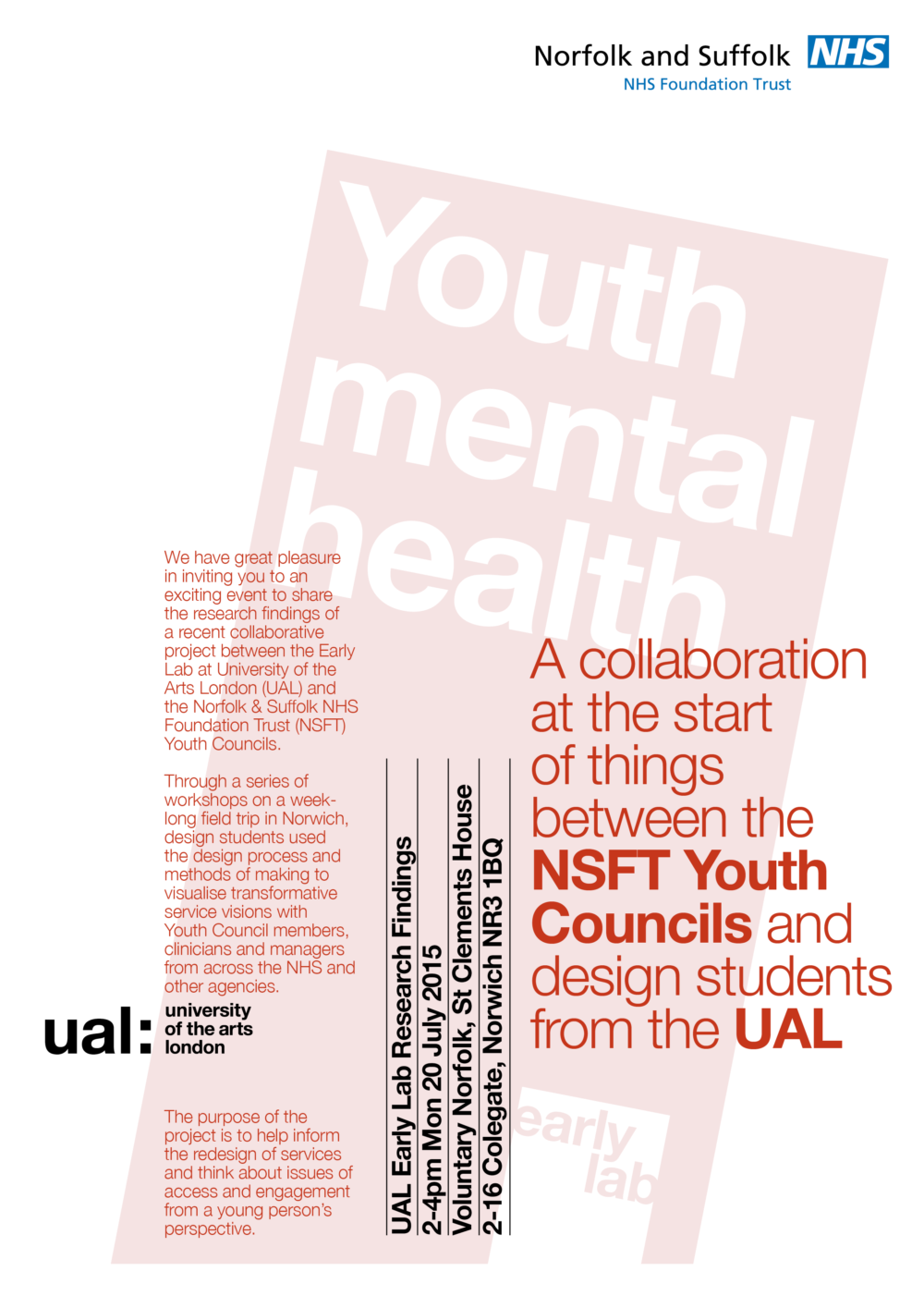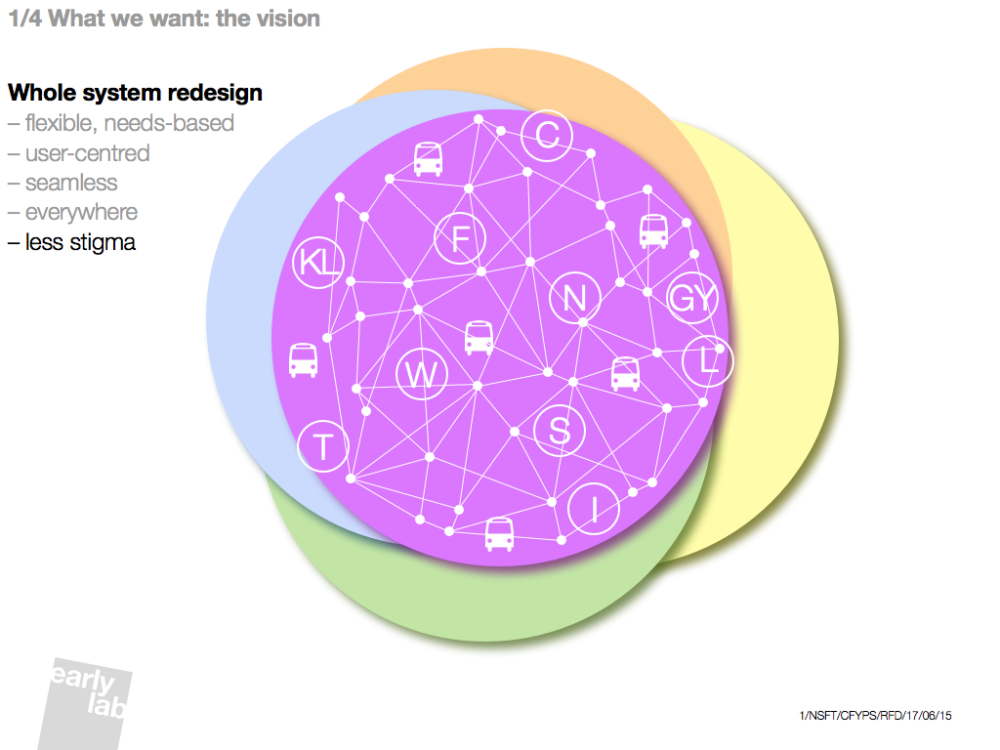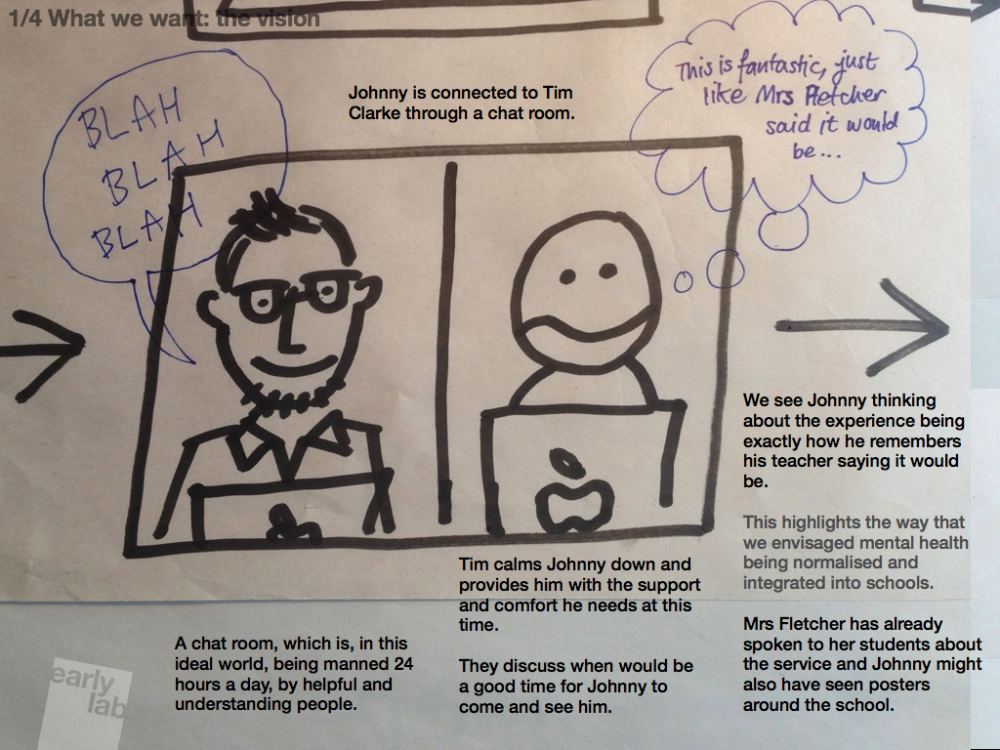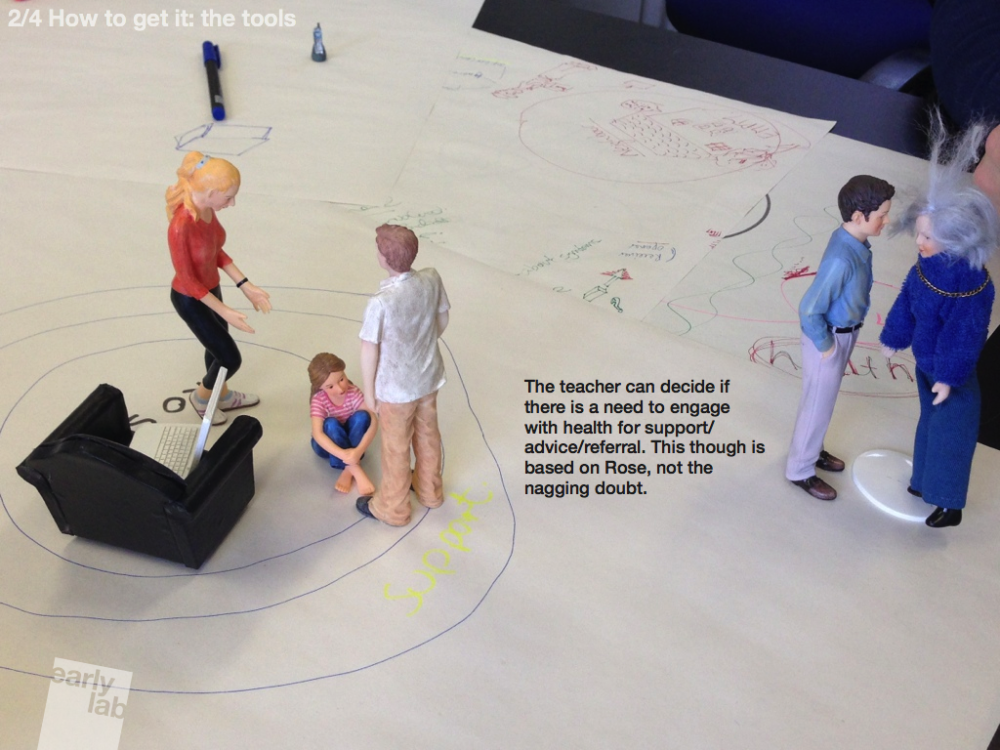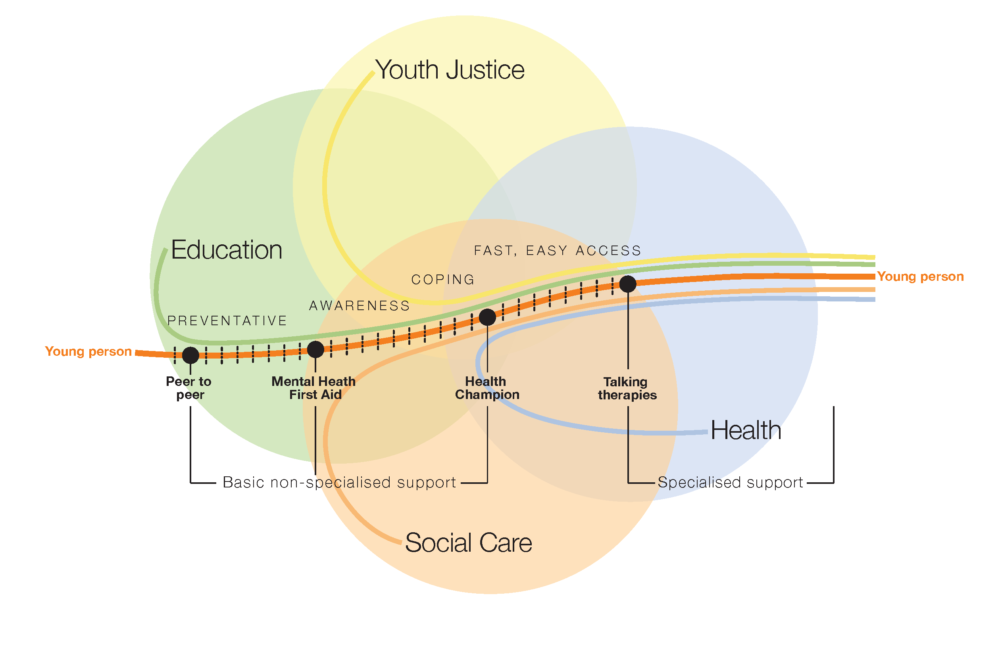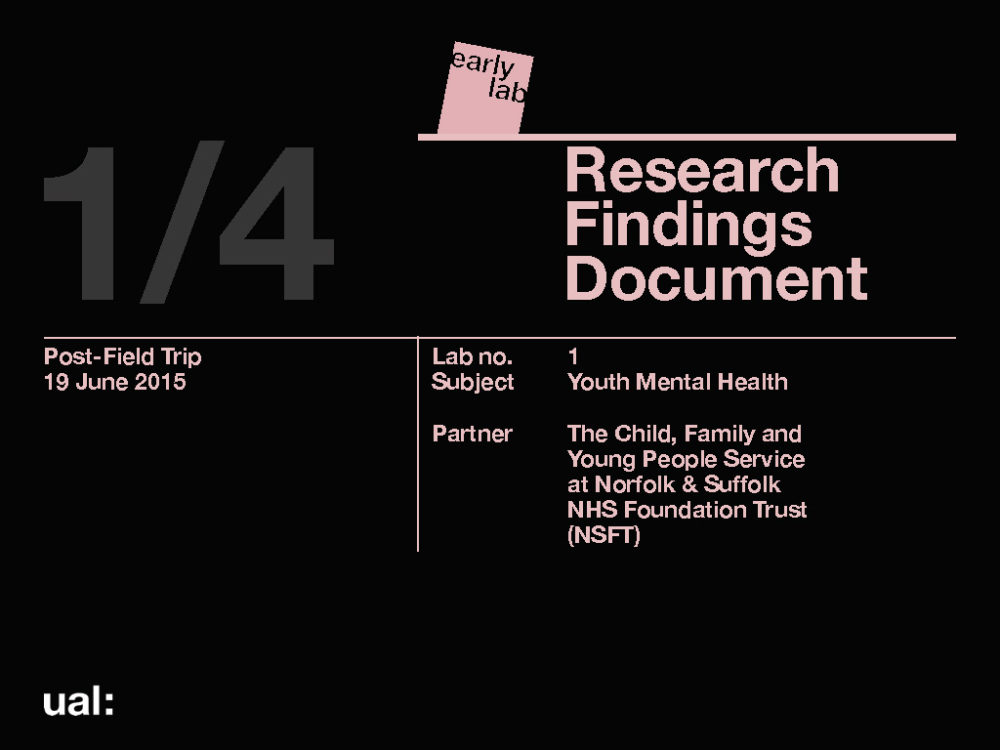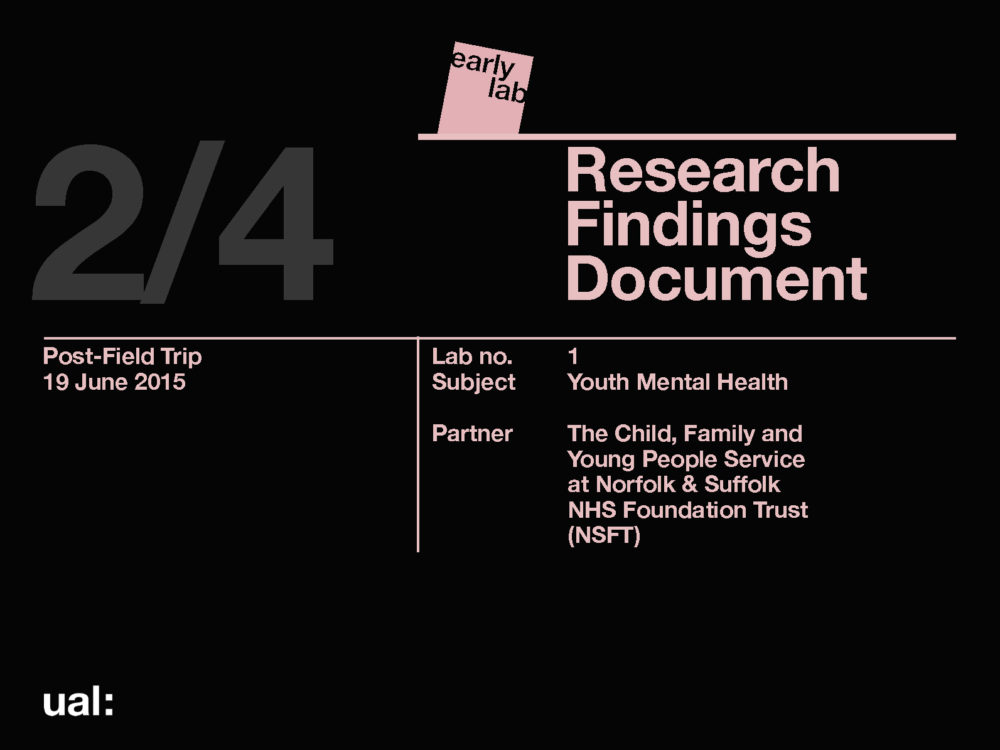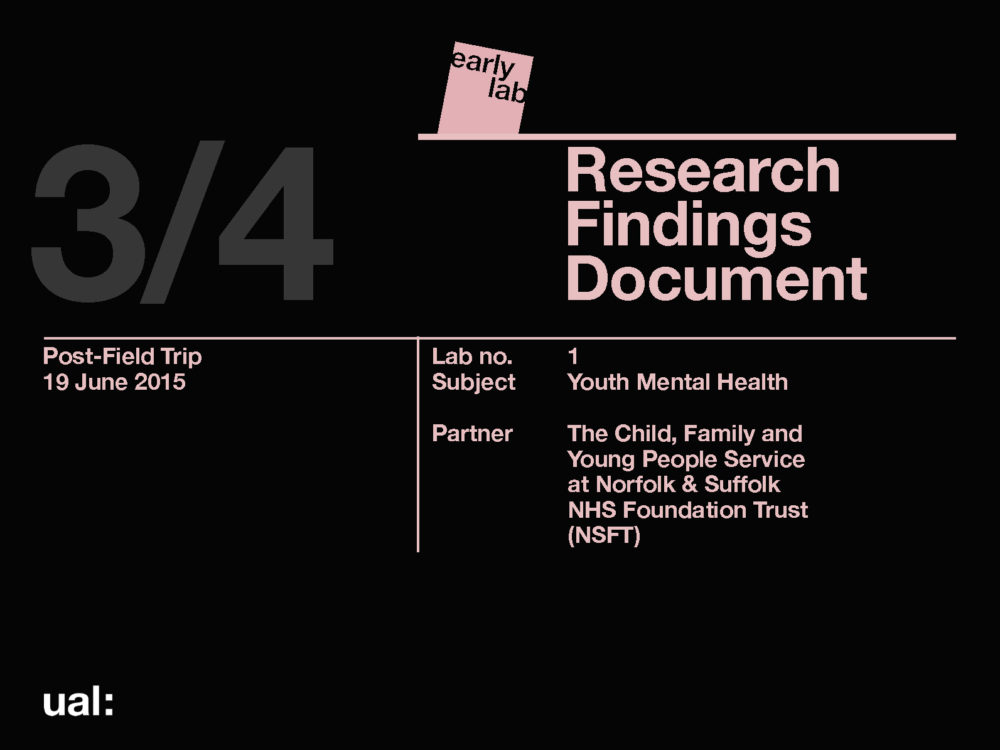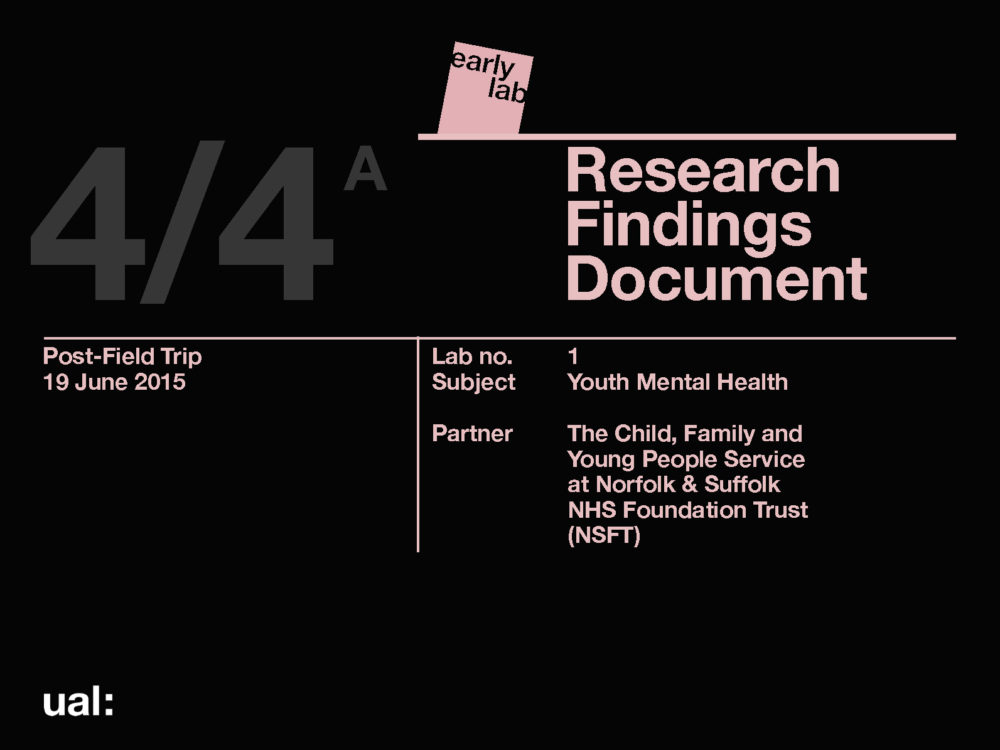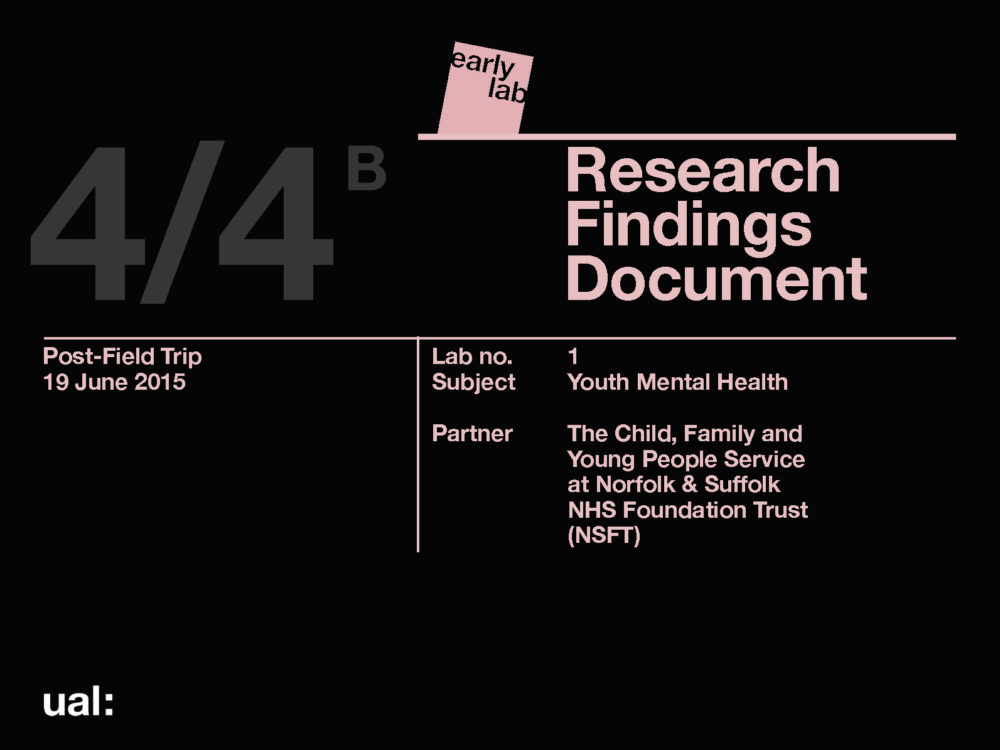Early Lab present findings of action-research to senior NHS commissioners.
The Early Lab team present the findings document generated by their action-research activity conducted on the Norfolk field trip three months earlier. Two presentations are delivered at two venues in Norwich: one to senior health commissioners, management and Youth Council and one to NSFT clinicians. The document represents a bold vision for a radically transformed mental health service in the region for children and young people. The findings were well received by all and now form the core of NSFT's transformation plan going forward.
20 July 2015: an account of the action-research findings presentations to NSFT in Norwich.
The story of giving the presentations in Norwich
“Coming back to Norwich is the pinnacle of two important moments: we had to reconnect and we had to give them a package to allow them to do the transformation they feel they need.” – Fabiane Lee-Perrella (Early Lab co-founder) on Early Lab’s presentation to NSFT and senior health commissioners.
The purpose of the presentations
Over a period of three months following the Norfolk field trip, the Early Lab team conducted eight review meetings poring over all the material outputs from the field trip workshops. The purpose of this was to analyse and configure the findings, structure and present a set of tentative proposals that shape a vision for a totally transformed mental health service for children and young people in Norfolk and Suffolk. One that responds to the concerns and insight of future users, existing users, those that work to deliver the service and those responsible for it. These concerns and insights were emphatically communicated to us during the field trip workshops back in March.
Early Lab’s objectives through the design of the presentation were to make visual all the ideas, insights and concerns that the NSFT Youth Council, its service clinicians and managers communicated to them during the field trip. To make visual in a compelling way by bringing service stories graphically to life and using information design to articulate complex coordinated system configurations. Making visual with the intent of making new ideas and emergent approaches much more tangible and with that appear more real and therefore seem, in the eyes of those using and delivering the services, more achievable. Early Lab have fulfilled their aim if the findings document leaves NSFT feeling better equipped to realise the transformation of their service themselves.
On 20 July 2015 Early Lab presented their action-research findings document twice. In the morning they had an audience of senior health commissioners, managers and the NSFT Youth Council at The King’s Centre in Norwich. In the afternoon they presented to NSFT clinicians at Voluntary Norfolk in Colegate, Norwich.
The presentation slides below illustrate the highlights from the action-research findings document (stretching to 240 pages of a Keynote file) presented that day.
The action-research findings document itself, split into four sections, (five pdfs) is below the highlight slides at the bottom.
